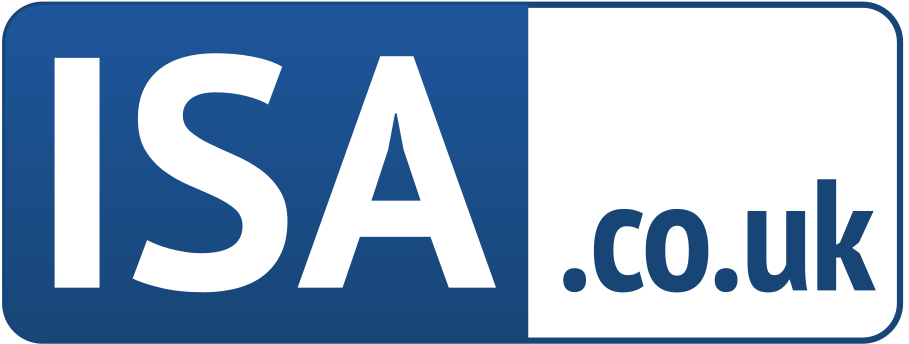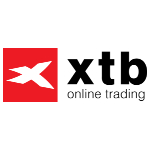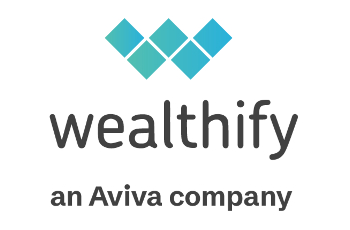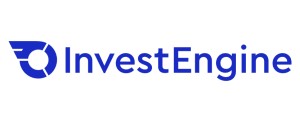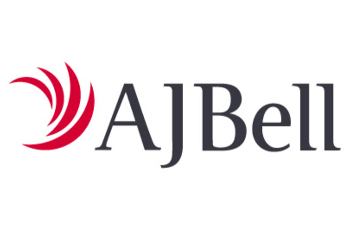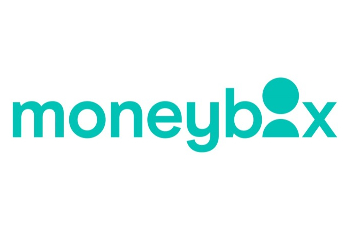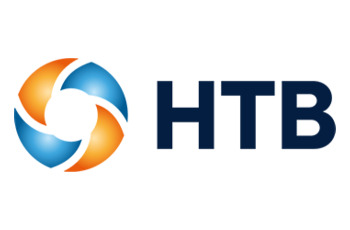Compare ISA Providers
Choose from some of the best ISA to make the most of this year’s tax free allowance.
Investment ISAs put your capital at risk & you may get back less than you originally invested
- Fund Choice: Invest in UK, US and international shares & funds
- Invest From: £25 pm
Good to know: An award-winning ISA that gives you complete control. The second largest platform in the UK with the widest choice of investment options in the market including funds, investment trusts, ETF’s and more. Open online in less than 10 minutes. Access to expert independent ideas and analysis. Low cost fees and trading. Capital at risk. *Open to new customers opening an ISA or GIA between 1st and 31st July (and existing customers adding an ISA only, so not available to existing customers opening a GIA. No minimum deposit required
Show More- Fund Choice: Choose from over 6900 instruments
- Invest From: £10
Good to know: Invest in real stocks with 0% commission (for monthly turnover up to 100,000 EUR (then comm. 0.2%, min. 10 EUR)). Over 6900 instruments including Stocks, ETF’s, Investment Plans, Forex, Commodities and Indices. Earn 4.5% interest on GBP uninvested funds. Applying for an account is quick and easy with a secure online form, and you could be trading within minutes. Multilingual customer support team is ready to help you – 24h hours a day from Monday to Friday. XTB is one of the largest stock exchange-listed FX brokers in the world with 1 million+ customers and over 20 years of activity in the financial markets. Capital at risk.
Show More- Fund Choice: Invest in managed portfolios
- Invest From: £500
Good to know: Choose your level of risk from cautious to adventurous and have a plan expertly created and managed for you. Create multiple Plans – including Ethical Plans – with different risk levels. Invest as little or much as you like, add regular payments and top up whenever you like. Withdraw money or transfer out without notice or penalty fees. Wealthify app lets you check how your Plan is performing, manage your transactions and provide investment news and insights. There is a simple Annual Management fee currently no more than 0.6%. The tax treatment of your investment will depend on your individual circumstances and may change in the future. Wealthify is authorised and regulated by the Financial Conduct Authority
Show More- Fund Choice: Invest in Exchange Traded Funds (ETFs)
- Invest From: £100
Good to know: Make the most of the world’s best ETFs commission free. Build your own portfolio commission free or leave it to our experts for just 0.25%. Zero‑ISA fees. Choice of 700+ ETFs. Low cost, diversified, index-tracking of stock markets, bonds and commodities. DIY or Managed. ETF costs apply. Capital at Risk. *When you invest at least £100 with InvestEngine (Capital at risk, Ts&Cs apply). ** Customers who transfer an existing ISA, or open and fund a new account could earn a bonus of up to £4,000 on top of their partner welcome bonus! Ts&Cs apply
Show More- Fund Choice: Invest in UK, US and international shares & funds
- Invest From: £25 pm
Good to know: Invest in over 2,000 funds, shares and more across 25 markets. Invest from £25 per month. Which? Recommended Provider for Investment Platforms 2024. Low-cost online dealing from £1.50. Open your account in minutes from app or website, manage your portfolio on the move. FSCS protected. Capital at risk
- Term: Instant Access
- Invest From: £1
Mobile app only account. New customers can earn 4.330% AER (variable tracker) boosted rate for 12 months, then the standard rate of 3.30% AER (variable tracker). Interest paid monthly. Built to move inline with Bank of England base rate. Unlimited deposits and withdrawals. Flexible ISA: withdraw and deposit as many times as you like, without it affecting your annual ISA allowance. ISA transfers also allowed in. Open in minutes: No forms, no fuss. All you need is an existing bank account and your National Insurance number. Covered by FSCS. Must be UK resident and be aged 18 or older
Show More*Up to three withdrawals can be made within each 12-month without affecting the interest rate. The Moneybox Cash ISA includes a 3.95% AER variable underlying rate and a bonus rate of 0.70% for the first 12 months. More than three withdrawals made within each 12-month period, a lower rate of 0.75% (variable) will be applied. Up to three withdrawals can be made within each 12-month period from the date of opening without affecting the interest rate. Customers can transfer in any ISAs they hold with other providers into a Moneybox Cash ISA, on web and in-app. Covered by FSCS. If more than three withdrawals made within each 12-month period, a lower rate of 0.75% (variable) will be applied for the rest of that 12-month period. The lower interest rate of 0.75% will also apply if the account balance dips below £500, automatically returning to the higher interest rate when the balance returns to £500 or more again. Must be UK resident and be aged 18 or older
Show More- Term: 1 Year
- Invest From: £1
Interest paid at maturity. ISA transfers also allowed in. Maximum deposit £250,000. FSCS Protected. Winner of Platinum Feefo Trusted Service Award in 2024. Must be UK resident and be aged 18 or older. No withdrawals permitted
- Term: 5 Years
- Invest From: £1
Interest paid annually. ISA transfers also allowed in. Maximum deposit £250,000. FSCS Protected. Winner of Platinum Feefo Trusted Service Award in 2024. Must be UK resident and be aged 18 or older. No withdrawals permitted
What is an ISA account?
An ISA account is a savings account that has several added tax benefits granted by HMRC.
With a standard savings account, you need to declare any interest and dividends you receive from your investments on your tax return. Depending on how much personal income you have from other sources, you could be required to pay a substantial amount of income tax on these investments.
However, any investments that you hold in an ISA account are completely tax-free.
In addition to this, you can also avoid paying any capital gains tax (CGT) on the gains that your investments make in an ISA. If you are a higher-rate taxpayer, you would need to pay 20% tax on any investment gains held outside of an ISA account, so this represents a considerable saving opportunity.
ISA accounts come in two different types: Cash ISAs and Stocks and Shares ISAs. You can also open Junior ISAs, which are specifically designed for children’s investments, and Lifetime ISAs, which are designed to save for a house purchase.
What is a Cash ISA?
Cash ISAs are usually offered by banks and building societies, and they can only hold cash investments. They will generate an interest rate that is set by your Cash ISA provider. There are two types of interest rates: fixed rates, and variable rates.
Fixed-Interest Cash ISAs:
- Will have a set term, ranging from one to five years
- Guaranteed interest rates for this period
- Higher interest rates than variable rates
- You are locked into the term, meaning that you will be charged for withdrawing early
Variable-Interest Cash ISAs:
- Interest rates will fluctuate over time
- Interest rates are generally lower than fixed-term products
- You can withdraw funds at any time, free of charge (easy access)
What is a Stocks and Shares ISA?
A Stocks and Shares ISA allows you to invest your ISA money in the stock market. Instead of being limited to interest-based cash savings, you can invest in a broad range of stocks and shares.
This gives you access to greater potential investment growth and investment income, but your investments will be at risk of losing money.
There are many investments you can hold within a Stocks and Shares ISA, and we have created a list of the most popular products:
- Managed Funds (OEICs, Unit Trusts and Investment Trusts)
- Shares
- ETFs (Exchange Traded Funds)
- Corporate & Government Bonds
- Managed Portfolios
You can invest in a mixture of all of the above assets provided that your ISA provider permits for holding all these investments.
Some investments focus on generating income in the form of regular dividends or income payments, whereas others are tailored towards investment growth over the long term.
Most investments in a Stocks and Shares ISA can go down as well as up in value, and so you should make sure you are comfortable with the risks involved.
What are the best performing ISAs?
When comparing Cash ISAs to Stocks and Shares ISAs, performance usually falls on the side of Stocks and Shares ISAs.
This is because of the broad range of investments you can hold in a stock ISA, and the potential for these to gain significant value.
Cash ISAs will be limited to interest rates. While you can have a guaranteed interest rate with a fixed-term Cash ISA, the chances that this investment will outperform a Stocks and Shares ISA are slim.
However, if you open a Stocks and Shares ISA and your investment perform poorly, you could end up losing money and being worse off than you invest in cash. This is particularly true for short term investments, as stocks and shares can be volatile over shorter periods.
Generally, stock markets go up over time, and so if you are investing for the long term then opening a Stocks and Shares ISA is worth considering.
Managed Portfolios vs Self-Select Platforms
Many Stocks and Shares ISA providers are known as investment supermarkets because you need to pick your investments yourself from the many selections available.
Finding the best fund or share to invest in can be a difficult task given the unpredictability of the stock market. Here are some top tips to consider when choosing your own investments:
- Diversify your portfolio – avoid putting all of your money in one fund or share so that your risk is spread across multiple companies.
- Diversify by sector and geography – as well as spreading your money across multiple companies, having exposure to lots of different sectors and geographical areas will make your investments more resilient to market fluctuations.
- Research the best funds and shares – most investment platforms will provide research and insight into their top fund picks. You can also look at a company’s shareholder information and quarterly results online, as well as the Key Investor Information Documents (KIIDs) for funds.
If you are not comfortable in picking your investments yourself, then you may wish to invest in a Managed or Ready-Made ISA portfolio.
These portfolios are created and managed by professional portfolio managers, and so you have the peace of mind that the underlying investments are of the highest quality.
However, the drawback of these products is that you will pay higher charges. These charge an annual percentage of the value of your portfolio.
The portfolio managers will take an ongoing fee from your investment. This will be on top of the standard fees that include your ISA provider’s fees and any underlying fund manager’s fees where applicable.
Which is the best ISA provider?
The best ISA provider for you will depend on your savings goals and investor experience. We have put together a list of some of the crucial factors to consider when weighing up the options:
Charges
- Cash ISAs will not charge an ongoing fee, but Stocks and Shares ISAs will have a platform charge
- Check the annual management charge that your ISA provider will take each year
- Check if this charge is tiered, or has any other limits or exceptions that may make it cheaper
- Look at dealing fees, account closure fees and any other ad hoc fees that may apply
Research
- Many Stocks and Shares ISA providers offer exclusive research into funds and shares available through their platform
- Review the quality of this research and consider if it is worthwhile for your investment strategy
- Assess how much of this content is exclusively available to account holders
Customer Service
- Particularly relevant with Stocks and Shares ISAs compared to Cash ISAs
- Consider that ISA providers with higher fees may have better customer service as a result
- Better customer service ratings indicate quicker response times and a greater chance that any account issues you have will be resolved
- Think about whether customer service is important to you – it could be more essential for novice investors, but also can be vital for regular traders who are more likely to experience dealing or account issues
Account features
- If you pick a Stocks and Shares ISA investment platform, consider the trading tools it offers
- These include features like share price alerts, currency exchange services and stop losses and limit orders
- Weigh up which features are important for your investment portfolio, and whether these might be worth paying higher charges for
Account Types – Lifetime ISA or Junior ISA
- If you are investing for your child, then a provider offering a JISA might be best for you
- If you are saving for a house purchase, then you should consider looking for the best LISA provider for you, as HMRC will add 25% free to your contributions
Can I have ISAs with different providers?
Yes, you can. However, there are some rules and limitations to be aware of:
- You cannot contribute to more than one Stocks and Shares ISA, or more than one Cash ISA, in the same tax year
- You can contribute to both a Stocks and Shares ISA and a Cash ISA in the same tax year, provided you do not exceed the combined ISA allowance of £20,000
- You can hold more than one Cash ISA and contribute to them in different tax years
- You can hold more than one Stocks and Shares ISA and contribute to them in different tax years
- You can transfer a Cash ISA into a Stocks and Shares ISA, and vice versa
How do I invest in an ISA?
Once you have decided on the best ISA provider for you, you can open an account easily, in as little as five minutes. You can open an account in the following ways:
- Online
- With a mobile App
- Over the telephone
- Posting a form and cheque
You are usually required to make a minimum contribution of at least £100; however, this amount can be lower if you contribute via a monthly direct debit. In this case, the minimum will be around £25 per month.
You will need to have a few things handy when you apply and there are some general requirements to be aware of:
- Have your National Insurance Number handy
- Have your Debit Card details to make a lump-sum contribution
- Have your bank details if you wish to contribute via Direct Debit
- You must be over the age of 18
- You must be a UK resident
Frequently Asked Questions
How much can I contribute to an ISA?
The annual ISA allowance is set by HMRC each year, and the current limit is £20,000 per person for the 2024/25 tax year.
Can I withdraw money from an ISA?
You can withdraw money from a Stocks and Shares ISA at any time provided that you sell the underlying investments first.
You can withdraw from a variable-rate Cash ISA at any time.
Withdrawing from a fixed-rate Cash ISA may incur charges if you do so before the end of the specified fixed term.
How do I withdraw money from my ISA?
Most providers will allow you to withdraw from your ISA online, via a mobile app, telephone, or by written instruction in the post.
Am I committed to one ISA provider forever?
No. You can switch providers with an ISA transfer if you wish. You can also contribute to other ISA providers in separate tax years.
Can I have a Joint ISA?
No, ISA stands for Individual Savings Account and must be solely owned for tax purposes.
Will I be charged for an ISA?
A Stocks and Shares ISA provider will charge an ongoing, annual platform fee as well as some ad hoc charges.
A Cash ISA could also charge if you withdraw money before the end of a fixed-term investment.
Are ISA accounts safe?
ISA accounts are authorised and regulated by the Financial Conduct Authority (FCA). This means that all ISA providers are covered by the Financial Services Compensation Scheme (FSCS) for up to £85,000 if they go out of business.
Please note that this may not apply to the underlying holdings within a Stocks and Shares ISA, and will not cover standard investment losses.
